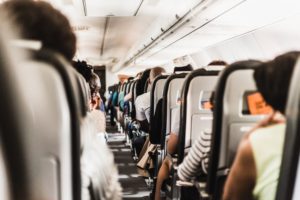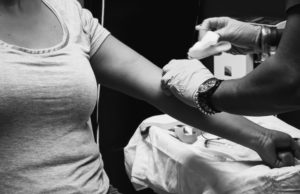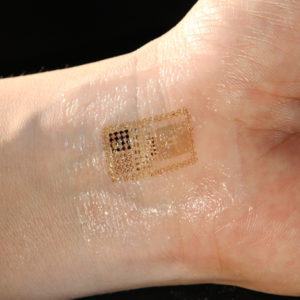by MDSP Blog Admin | May 27, 2020 | Employers, Providers
As the nation and our economy begins to heal many people are walking towards better health. Countless stressors that bombard us daily have a detrimental effect on our minds and bodies. In response to this many have taken to walking to maintain their health physically, mentally, and emotionally during COVID-19. Whether people are with family, friends, or coworkers; in neighborhoods, parks, or at the office; there is always a good time for a walk. 
Just 30 minutes every day can increase cardiovascular fitness, strengthen bones, reduce excess body fat, and boost muscle power and endurance. It can also reduce your risk of developing conditions such as heart disease, type 2 diabetes, osteoporosis, and some cancers. Unlike some other forms of exercise, walking is free and doesn’t require any special equipment or training. A 2007 study of inactive women found that even a low level of exercise – around 75 minutes per week – improved their fitness levels significantly when compared to a non-exercising group.
Studies are finding that the stay home orders are affecting people’s mental health and walking can help. Antonia Malchik, author of A Walking Life: Reclaiming Our Health and Our Freedom One Step at a Time, noted in a recent essay, “Walking helps us remember what it feels like to be fully alive.” She noted that many studies link moderate regular exercise—and walking in particular—with improved mental health, including lower incidence of anxiety and depression.
With too many benefits to pass up, why not take a stroll for better health?
Source: LifeHacker – Walking Benefits
Click here if you would like to know more About MDSP
by MDSP Blog Admin | May 20, 2020 | Employers, Providers
 With U.S. travel reduced by 94% during the coronavirus pandemic, carriers have decreased their flying schedules to roughly 30% of normal this month. This means that the majority of planes are flying at near capacity. In response, the top three airlines, American, Delta, and United Airlines, encourage all passengers to wear face masks during travel to maintain health and safety.
With U.S. travel reduced by 94% during the coronavirus pandemic, carriers have decreased their flying schedules to roughly 30% of normal this month. This means that the majority of planes are flying at near capacity. In response, the top three airlines, American, Delta, and United Airlines, encourage all passengers to wear face masks during travel to maintain health and safety.
To relieve worry, airline employees have been directed to encourage passengers & providers to wear face masks while traveling. Flight crew remind those flying to wear their face masks during the flight as much as possible to keep the public safe. Reuters quoted a United spokeswoman who said that any non-compliance by travelers would be addressed at the gate and that flight attendants had been counseled to use their “de-escalation skills” on the aircraft and to reseat any passengers as needed. “Once onboard and off the gate, the face-covering policy becomes more lenient. The flight attendant’s role is informational, not enforcement, with respect to the face-covering policy,” American told its pilots in a message.
This comes as a relief for the traveling physicians who are assisting the growing needs for nationwide hospital coverage during the coronavirus pandemic lean on the airlines to maintain public safety. The airline’s ‘encourage to comply’ policy is just one measure airlines are taking to make sure providers and passengers alike get to their destination safely.
Click on the link to find out more about MDSP and locum tenens opportunities go to Search Jobs
For more on this topic click here
by MDSP Blog Admin | May 15, 2020 | Employers, Providers
 Recently, Centers for Medicare and Medicaid Services proposed a new rule to unleash new technology that will cause medicare reimbursements to increase by 1.6% this Fall 2020.
Recently, Centers for Medicare and Medicaid Services proposed a new rule to unleash new technology that will cause medicare reimbursements to increase by 1.6% this Fall 2020.
The rule’s objective is to update the hospital inpatient prospective payment system (IPPS) and long term acute care hospital (LTCH) proposed rule (CMS-1735-P) for the 2021 fiscal year. CMS recognizes the significant impact of the COVID-19 public health emergency, and the limited capacity of health care providers to provide feedback on the proposals and has limited the rulemaking required to focus primarily on essential policies including Medicare payment to hospitals, as well as proposals that reduce provider burden and may help providers in the COVID-19 response. These changes would apply to 3,200 acute care hospitals and approximately 360 long term care hospitals on or after October 1st, 2020. CMS is proposing a new technology add-on payment pathway for certain antimicrobial products which includes a new MS-DRG for Chimeric Antigen Receptor T-Cell Therapy. CMS estimates a 1.6% increase in IPPS payments overall.
Other changes will be necessary with CMS’s new rule that will affect teaching hospitals and residency programs, the hospital-acquired condition education program, the hospital readmissions reduction program, the hospital inpatient quality reporting program, the PPS-exempt cancer hospital quality reporting program, and others.
CMS’s objective is to ensure that America will have continued access to a world-class healthcare system that delivers potential life-saving diagnostics, therapies through the release of innovative medical technology, and removing barriers to competition. This rule is a step towards accomplishing this goal and delivering current therapies to address the pandemic.
For more information go to CMS Newsroom or download CMS’s proposed rule (CMS-1735_P) here
Stay connected by visiting our blog for news, research, and MDSP updates.
by MDSP Blog Admin | Apr 29, 2020 | Around MDSP, Employers, Providers
Recent Wearable Medical Technology Innovations Helps During COVID-19 Pandemic
Wearable Medical Tech Helps COVID-19 fight by providing healthcare professionals with valuable data during the pandemic while preventing future spread. The latest wearables (which includes connected blood pressure monitors, continuous glucose monitors, pulse oximeters, and electrocardiogram monitors) are just the beginning of what is possible. According to ABI Research Wearables Analyst, Stephanie Tomsett, “There are some exciting wearable deployments in place which are helping to track and monitor the spread of COVID-19,” and can help reduce unnecessary contact between medical staff and patients which helps reduce potential spread.
“Wearables have often been used in medical trials and to aid healthcare professionals to monitor the vitals of many patients simultaneously, both in and out of the hospital, with a focus on specific healthcare issues and the onset of COVID-19 is no exception,” says Stephanie Tomsett, Wearables Analyst at ABI Research.

MC10 BioStamp
Wearable medical technology comes in many forms today. MC10 Bio stamps (see picture), smartwatches, activity trackers, and small wearable sensors are just some of the innovations that have flooded the market today. Some of these technologies act like a second skin which have circuits that collect power and provide insight and health data to physicians in and out of the hospital. Pairing these technologies with Telemedicine advancements provides us with higher quality healthcare at a distance like never before.
About ABI Research
ABI Research provides strategic guidance to visionaries, delivering actionable intelligence on the transformative technologies that are dramatically reshaping industries, economies, and workforces across the world. ABI Research’s global team of analysts publish groundbreaking studies often years ahead of other technology advisory firms, empowering our clients to stay ahead of their markets and their competitors. Click for more information from ABI Research
For recent events, news, and innovations check out our blog!
Click here for more!
by MDSP Blog Admin | Apr 21, 2020 | Around MDSP, Employers, Providers
Soft Opening for Healthcare Facilities
Hospitals begin assessing to restart non-COVID-19 essential services after Centers for Medicare & Medicaid Services releases guidelines for healthcare organizations in areas with low or stable levels of COVID-19. Centers for Medicare & Medicaid Services previously recommended hospitals limit nonessential surgeries and medical procedures during the pandemic. The new guidelines encourage a gradual transition back to these services in which healthcare leaders collaborate with local and state public health officials. Hospitals should also assess their supply levels, workforce availability, facility readiness, and testing capacity when deciding when to resume or ramp up in-person care.

“Today, some areas of the country are experiencing fewer cases and lower incidence of the virus, necessitating a more tailored and flexible approach,” CMS Administrator Seema Verma, said in a press release. “Every state and local official will need to assess the situation on the ground to determine the best course forward, but these guidelines provide a gradual process for restarting non-COVID-19 essential care while keeping patients safe.”
In anticipation of these new changes, we are hopeful to see a ramp-up in the need for nationwide coverage as hospital care and services. For more information on current jobs or to submit a request for coverage click the links below.
Click Here to Request Coverage
Click Here to Search Jobs
Source: Becker’s Hospital Review – COVID-19 Update
by MDSP Blog Admin | Apr 17, 2020 | Employers, Providers
Specialty Boards waive Certifications requirements due to #covid19. Check out ABMS.org for more details and on ongoing updates. #healthcare #locumtenens #physicianjobs
Throughout the COVID19 epidemic, the American Board of Medical Specialties and its 24 Member Boards are prioritizing the health and well-being of health care providers, patients, and the general public.
ABMS Article
MDSP Blog


 With U.S. travel reduced by 94% during the coronavirus pandemic, carriers have decreased their flying schedules to roughly 30% of normal this month. This means that the majority of planes are flying at near capacity. In response, the top three airlines, American, Delta, and United Airlines, encourage all passengers to wear face masks during travel to maintain health and safety.
With U.S. travel reduced by 94% during the coronavirus pandemic, carriers have decreased their flying schedules to roughly 30% of normal this month. This means that the majority of planes are flying at near capacity. In response, the top three airlines, American, Delta, and United Airlines, encourage all passengers to wear face masks during travel to maintain health and safety. Recently, Centers for Medicare and Medicaid Services proposed a new rule to unleash new technology that will cause medicare reimbursements to increase by 1.6% this Fall 2020.
Recently, Centers for Medicare and Medicaid Services proposed a new rule to unleash new technology that will cause medicare reimbursements to increase by 1.6% this Fall 2020.


Recent Comments